More than one billion people in the world live with some form of disability – 80 per cent of them live in developing countries.
In Somalia, there are no reliable statistics on number of persons with disabilities.
But experts estimate that the number is higher than the global average of 15 per cent of population, owing to the country’s prolonged conflict.
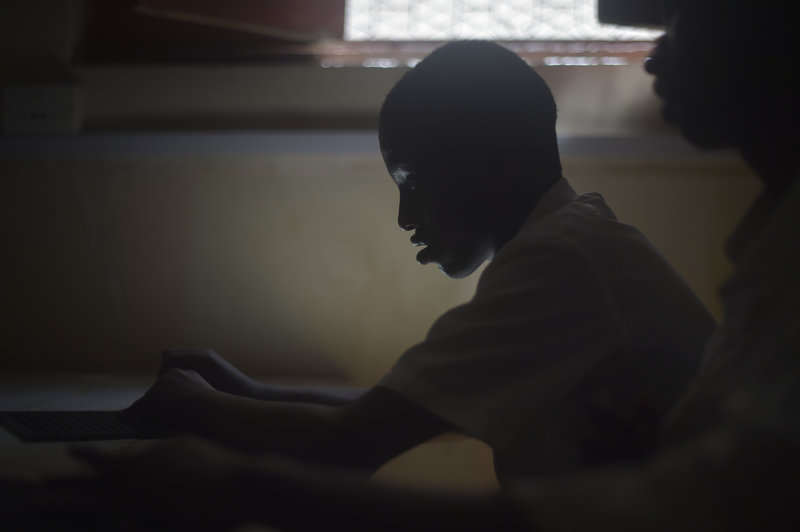
A person’s experience of disability is shaped by factors such as health conditions, their personal situation, and their local society’s capacity to understand and treat them with respect.
For hundreds of thousands of Somalis living with disability, access to adequate health care and facilities, education, employment opportunities, and social inclusion are vital.
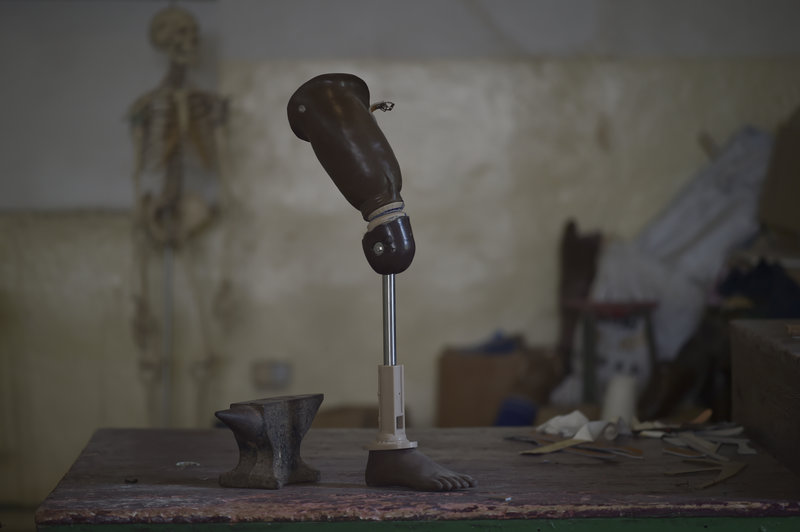
While disability in Somalia takes several shapes and forms, the loss of limbs stemming from the country’s civil war and other acts of violence is a commonly-experienced one. For example, since 1982, the Somali Red Crescent Rehabilitation Centre has made more than 15,000 prosthetics, many of those during and since the war.
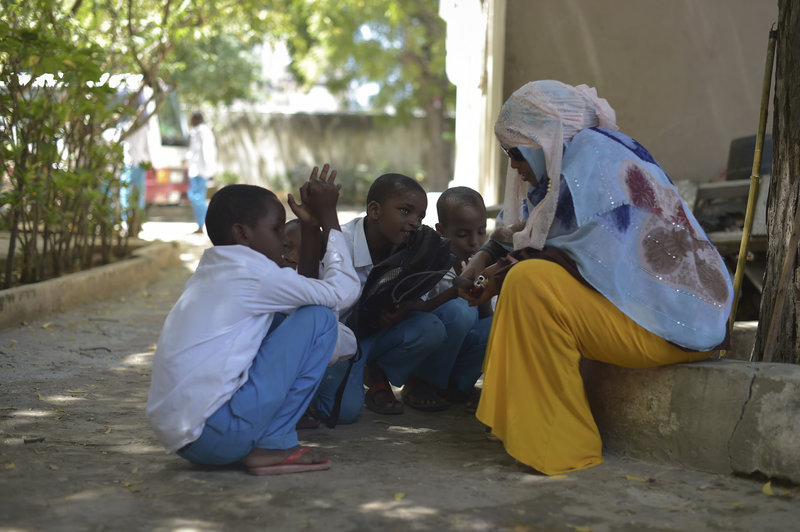
But aid for persons with disabilities covers a range of areas beyond providing much-needed tools and equipment. It extends into their rights, their hopes and their dreams.
Basira Abdi Mohamed was the only disabled child among nine offspring when she was born in 1992. Once a student of the Al-Nor School for the Blind in Mogadishu, she is now working with younger generations of disabled children to help them overcome their challenges and learn.
“It is extremely difficult for disabled people to get an education, enjoy certain facilities and have a normal life,” says Basira.
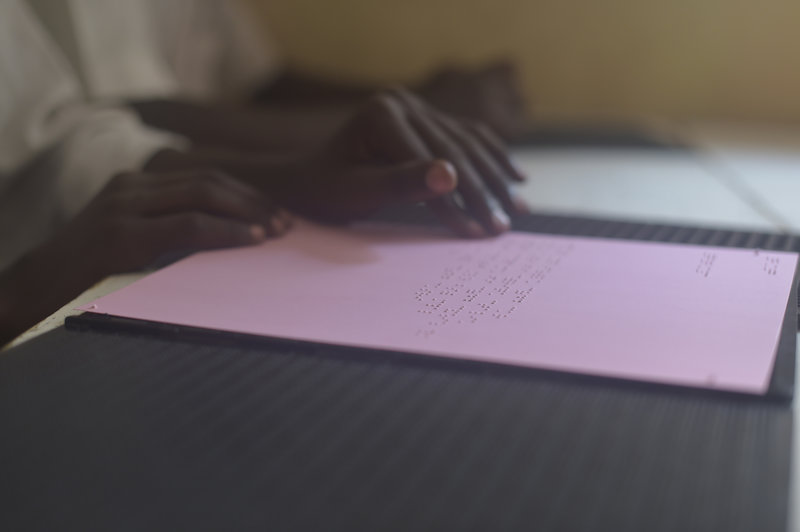
The Al-Nor School for the Blind was opened in 2005 and provides free and special education and skills training to blind or visually impaired children. The school has 87 students and employs 25 staff members, including ten trained teachers.
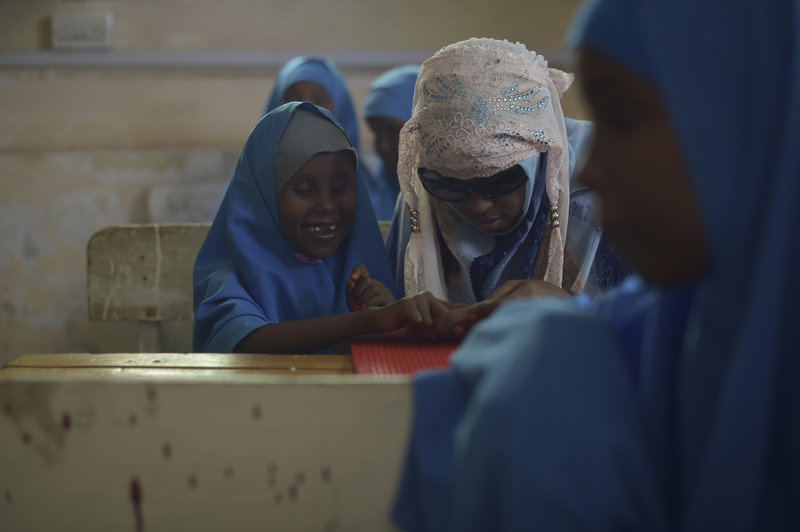
For Basira, the school changed her life.
“Education has shaped me and made me the person I am today,” says Basira. “I would like to see improvement in the quality of education for the disabled people. I would like to revive the disability centres that existed before the war, get them renovated so that they can start admitting learners.”
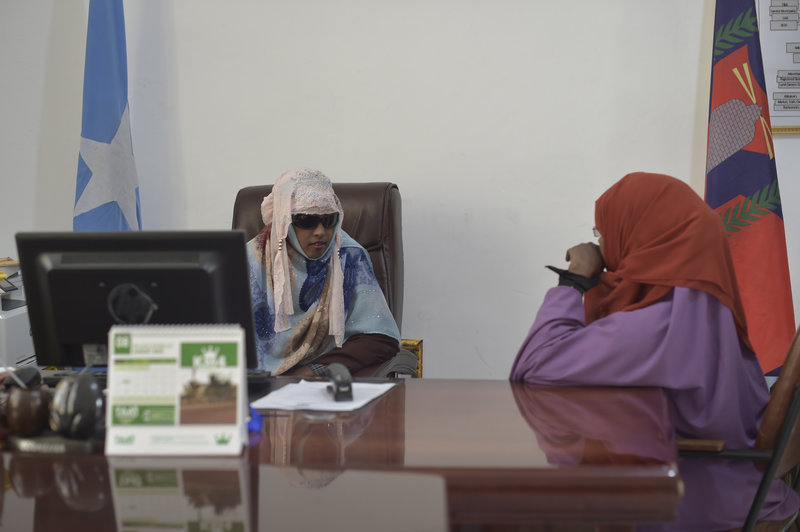
Basira calls herself a “leading advocate” for the rights of persons with disabilities, especially girls and women. In her job as Coordinator of the Affairs of Disabled Persons for the Benadir Regional Administration, Basira has set herself ambitious goals: “My colleagues and I plan to visit all the districts in Mogadishu. We will do our best to bring about change that will benefit disabled persons.”
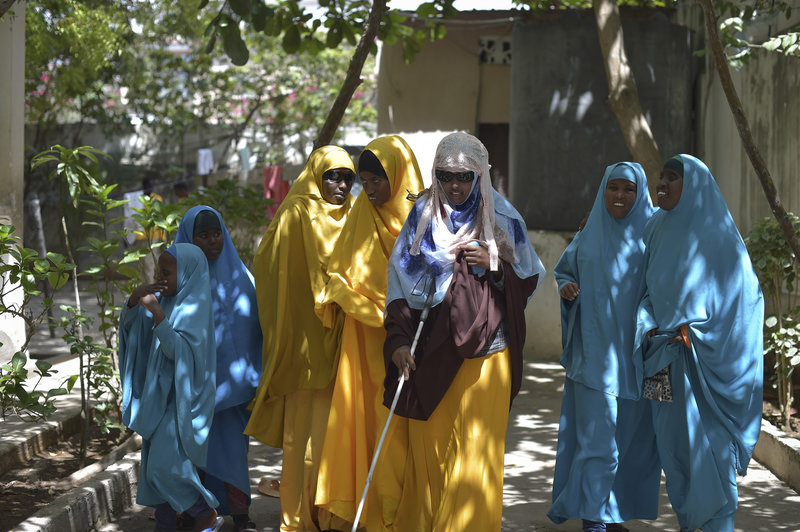
“I believe that blindness is God-given. When the light is taken from people’s eyes, God may bestow on them other abilities to enable them to do extraordinary things,” says Basira.
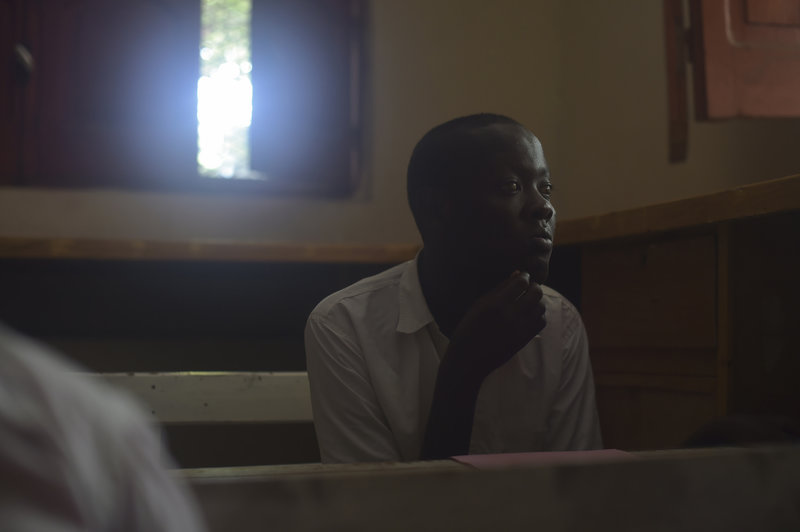
“Persons with disabilities are looked down upon by society. Instead of receiving tangible help, we are given handouts. Society can be very dismissive of the disabled.”
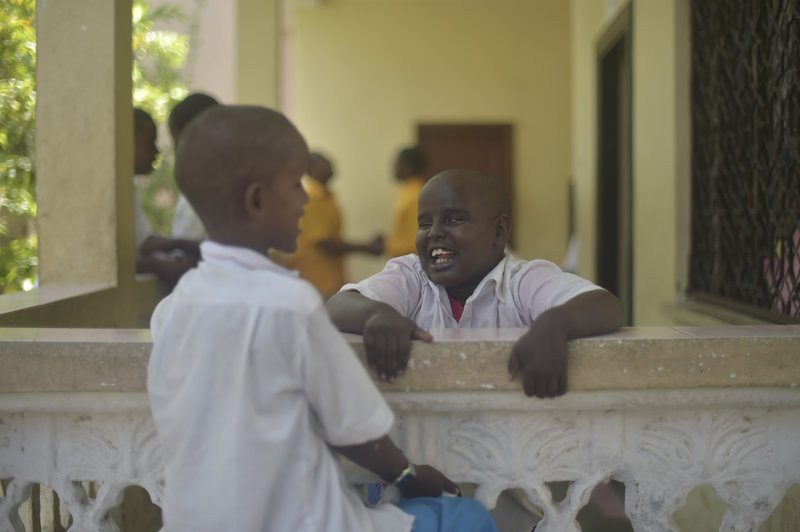
“My message to the one who can see is: A blind person is just like you. He is only missing the light. Blindness doesn’t take away one’s intelligence, knowledge or strength.”
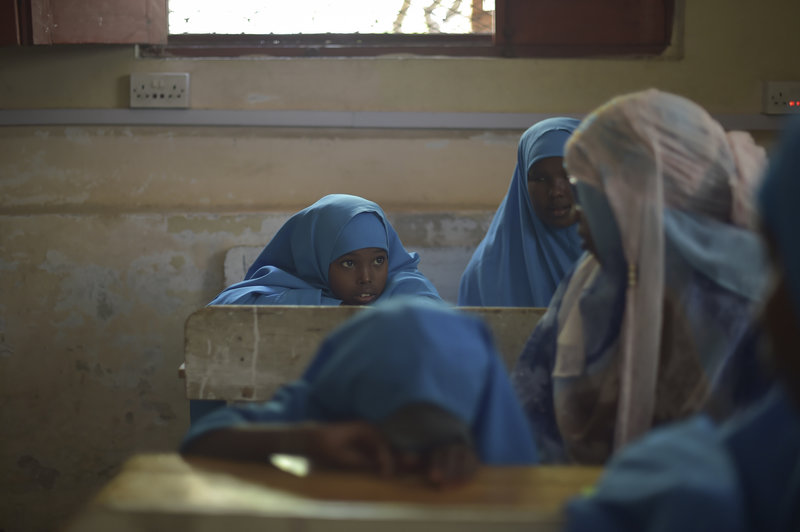
“I advise disabled persons, especially women and girls – young, old, married, or single – to aspire to be educated. Education will help them overcome a lot of life’s challenges,” says Basira.




